Amarcord (1973)
“The origins of this town are lost in the mists of time.”
|
Synopsis: |
|
Genres, Themes, Actors, and Directors:
Response to Peary’s Review: … and another particularly funny bit shows Zanin exciting “a 300-pound woman [Maria Antonietta Beluzzi] by lifting her off the ground repeatedly” and being “rewarded with a chance to smother himself in her enormous breasts.” An even more amusing sequence involves “a family dinner during which Mama [Pupella Maggio] refuses to eat, Mama and Papa (Armando Brancia) argue (as they must do every night), Zanin eats like a pig, the emotionless uncle [Nando Orfei] juggles and eats from a plate he holds in his hand”: … “Papa chases Zanin from the house for having urinated on a man’s hat at the movie theater, and Grandpa [Giuseppe Ianigro] slips into the next room to break wind.” Peary writes that while “the picture isn’t all comedic,” “those are the best moments — [and] unfortunately, they come mostly at the beginning.” He argues that “a couple of anecdotes, presented stylistically, about peripheral adult characters in the town really slow down the picture”: … and that “the scene in which the father is punished by the fascists for some indiscreet remarks is well done, but seems out of place in this otherwise apolitical film.” (I disagree that the film is apolitical.) While some scenes definitely “work” better than others, Fellini’s overall aim with this film seems more impressionistic, showing us glimpses of memories and senses (necessarily not always coherent) that infuse one’s recollections of growing up. To that end, he succeeds entirely, making this film worth at least a one-time look, especially for his fans. Notable Performances, Qualities, and Moments: Must See? Categories
(Listed in 1001 Movies You Must See Before You Die) Links: |
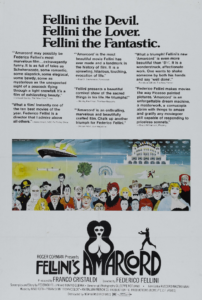
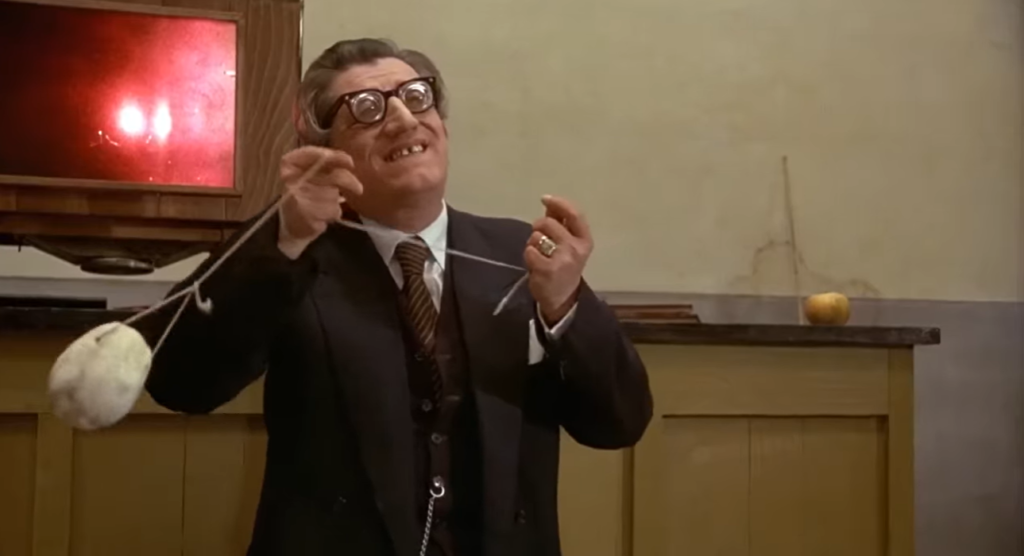



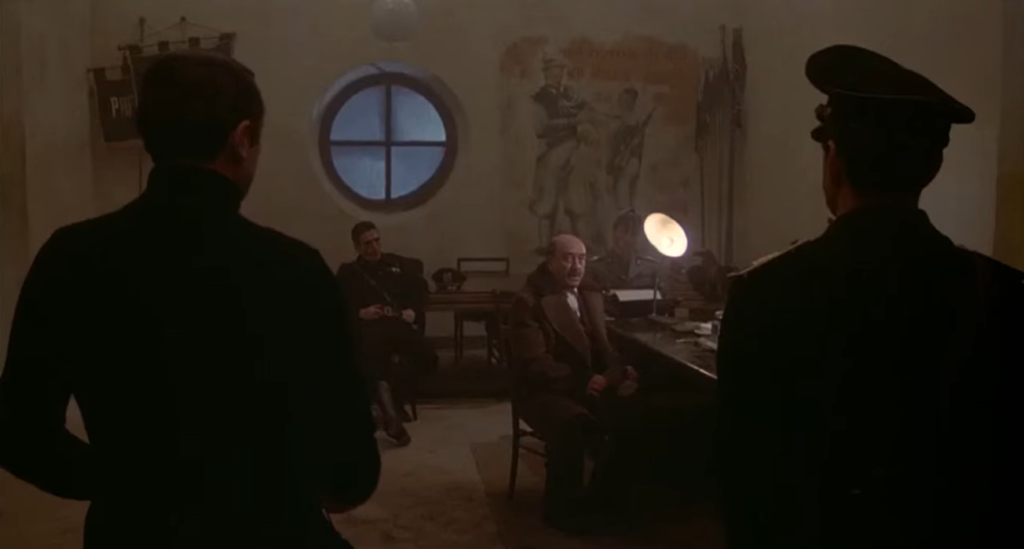
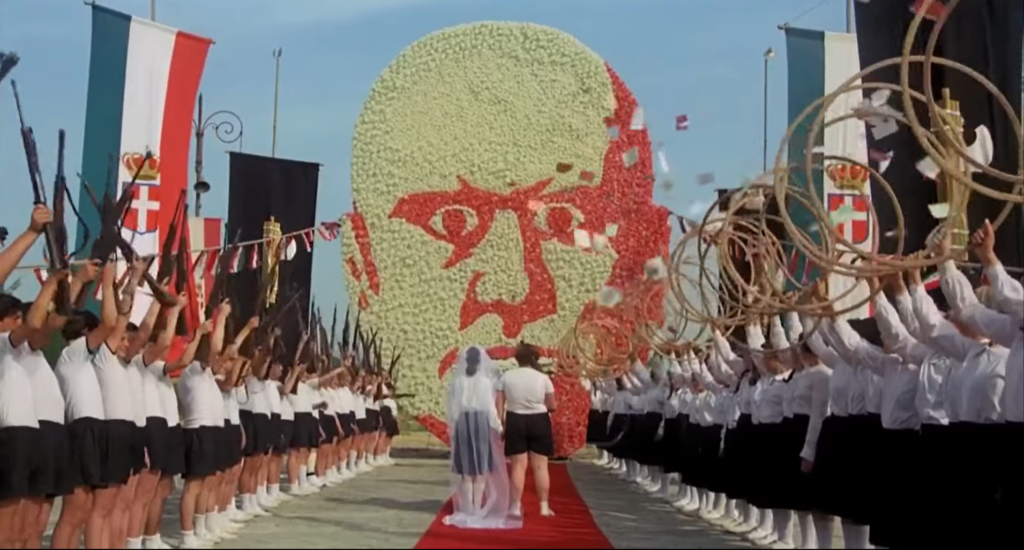
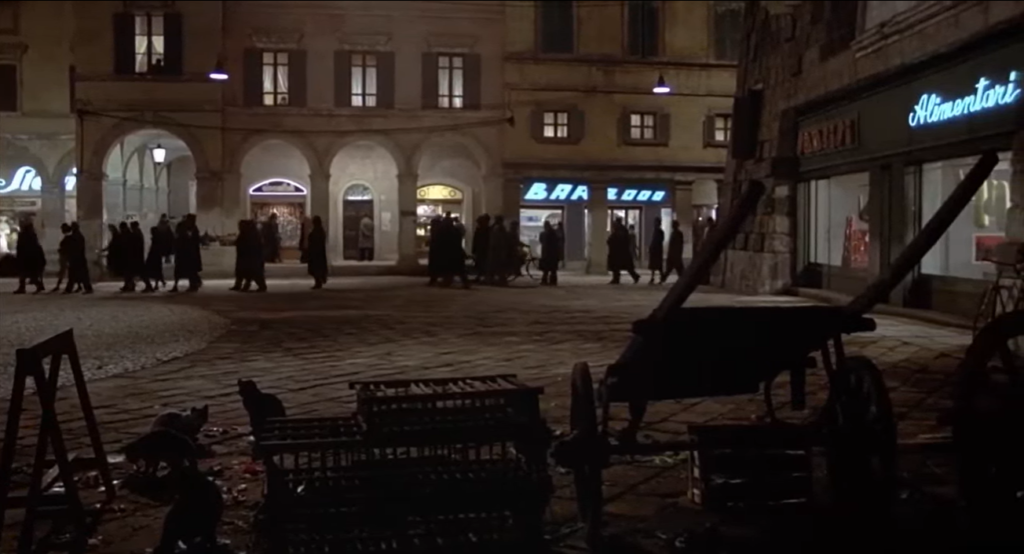
One thought on “Amarcord (1973)”
A once-must, being among Fellini’s best films. As posted (12/20/15) in ‘Film Junkie’ (fb):
“And to prove it, she even offered me posterior intimacy.”
‘Amarcord’ [blu-ray]: Being the visual treats that they are, I would imagine that any (color) film by Fellini benefits significantly from a blu-ray transfer. ‘Amarcord’ is certainly a stand-out in this regard.
It’s probably been several decades since I last saw this Oscar winner for Best Foreign Film. Though I wouldn’t call myself a huge Fellini fan, this is among his most accessible work – and apparently has remained a real crowd-pleaser. (The first IMDb post is by a guy who saw it over 50 times and calls it the best movie ever made.)
Virtually plotless, the film (in somewhat sentimental, semi-autobiographical fashion) follows life in an Italian town in the ’30s – it’s a seasonal re-enactment, starting one Spring and following through to another Spring.
The people are the story, the Catholics under a fascist thumb. If the characters in this small town are often seen as ridiculous they are nevertheless captured with affection. And there is a considerable preoccupation with sex here. But as the film reaches its conclusion, it is also very moving – as focus is placed on a death in a family.
For all of his emphasis on fantasy, Fellini (at least here) is a realist, so his attitude is that life is just a series of happy and sad events. The sadness depicted gives way again to happiness, and the film ends with a wedding celebration.
Seeing this film again reminded me of a smaller Fellini movie that I am genuinely quite fond of – ‘The Clowns’ – made shortly before ‘Amarcord’. That is also a ‘look back at childhood’ film and, as such, makes for a nice companion piece.